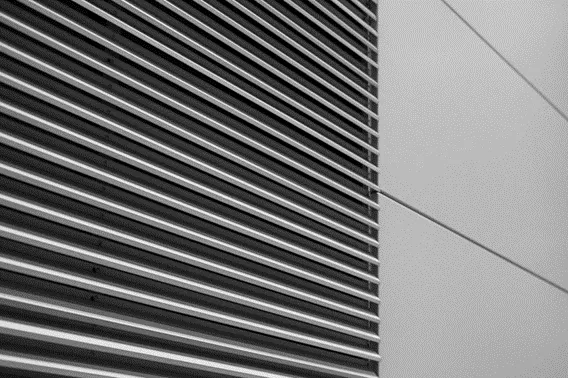Signs Your Heating or Cooling Unit Might Need Attention

Have you ever noticed your home feeling a little off, like it’s conspiring against your comfort? Maybe the living room feels like Florida in August, while the bedroom could double as a meat locker. In Northshore, LA, where summers seem to come with a side of humidity you could bottle, and winters can still surprise you with a chill, having your heating and cooling system in top shape isn’t just about comfort—it’s survival. The past few years of unpredictable weather patterns have taught us that extremes are becoming the norm. Energy prices are also on the rise, and no one wants to pay more for less comfort. In this blog, we will share the signs your heating or cooling unit might need attention, how these problems connect to bigger trends, and what you can do before your system waves the white flag.
Comfort Zones Aren’t What They Used To Be
Uneven temperatures in your home aren’t just annoying—they’re telling you something. If your upstairs feels like a sauna while your downstairs is perfect, the airflow may be off or your system may be undersized for your space. That’s where professional evaluation comes in. One Hour Air Conditioning & Heating of North Shore can pinpoint these issues before they turn into expensive replacements. The rise of remote work has made consistent indoor comfort more important than ever. You’re not just coming home to your environment anymore—you’re living and working in it all day. An unreliable system can make video calls feel like survival challenges and working from home a daily battle with the thermostat. This comfort imbalance isn’t just about personal preference. It can affect sleep quality, productivity, and even your health. If certain rooms are always too hot or too cold, your unit might not be distributing air evenly or could be cycling incorrectly. Addressing this early could save you from a summer spent in one chilly corner of the house.
The Noises You Can’t Ignore
A healthy heating or cooling unit runs with a low, steady hum. But if your unit starts sounding like a percussion section warming up, it’s time to pay attention. Rattling might mean loose components. Whistling could be a sign of duct issues. Banging or grinding is a red flag for motor problems. This isn’t just mechanical wear—it’s an SOS. Think of your system like a car. You wouldn’t ignore a constant knocking sound in your engine without expecting it to fail at the worst time. In the same way, ignoring these noises means you’re gambling on an eventual breakdown. And in today’s supply chain climate, waiting on parts could mean living without heating or cooling for weeks. Repair costs and delays are becoming more common, and quick action can help you avoid both.
Strange Smells Tell A Story
If turning on your unit is followed by an odor that makes you question your life choices, don’t just open a window and hope for the best. A musty smell can indicate mold in the ducts or unit, which is more than unpleasant—it’s a health risk. Burning smells might mean wiring issues or overheating components. In a world where indoor air quality is now linked to long-term health outcomes, ignoring these warning signs is risky. More households are investing in air purifiers and ventilation upgrades, but none of that will matter if the core system is compromised. Smells are your system’s way of saying something is wrong right now, not later.
Thermostat Games You Can’t Win
If you’re constantly adjusting your thermostat to find the right temperature, it’s not just bad luck. A faulty thermostat or a miscalibrated system could be the culprit. Technology has given us smart thermostats that can learn our habits, but if the underlying unit isn’t responsive, no amount of software can fix that. This trend is similar to people upgrading their phones when the problem is actually with their network—it feels like progress, but it’s not solving the root issue. Consistent temperature control depends on a healthy system. If your thermostat is new but you’re still struggling, it’s time to have a professional check the connection between the two.
Energy Bills That Tell Their Own Story
Utility costs are climbing across the country, and in many households, HVAC systems are the biggest contributor. If your bill has jumped without a change in your usage, your system’s efficiency may be dropping. Older units naturally lose efficiency, but clogged filters, duct leaks, or failing parts can speed that decline. In the bigger picture, inefficient systems mean more strain on the power grid. That’s why energy efficiency isn’t just a personal finance issue—it’s part of a national conversation about sustainability. For homeowners, fixing these issues early can keep bills stable and extend the life of the system.
The Seasonal Struggle
Every season brings a new challenge for heating and cooling systems. Summer heat waves push AC units to their limits, while sudden cold snaps test furnaces. Climate change has made these swings more intense, and systems that aren’t maintained often fail during these extremes. Scheduling maintenance before the start of each season isn’t just about avoiding discomfort—it’s about avoiding repair delays during peak demand. Technicians are busiest during weather extremes, and waiting for help when your unit fails could mean living in uncomfortable conditions for days. Staying ahead of the season is now part of modern home management.
When Repairs Become A Pattern
Needing one repair every few years is normal. But if you’re calling for service multiple times a year, your system might be on its last legs. The decision to replace a unit can feel daunting, especially with rising equipment costs. However, constant repairs can quickly surpass the price of a replacement. The bigger conversation here is about long-term value versus short-term savings. In a time when people are more conscious of every dollar, it’s tempting to patch things up. But the real savings come from investing in a reliable system that won’t surprise you with mid-season breakdowns.
If your heating or cooling unit is sending any of these signals, it’s worth acting before the next weather shift catches you off guard. The systems that keep us comfortable are often out of sight and out of mind—until they aren’t. And by then, it’s usually inconvenient, expensive, and disruptive. Paying attention to the small signs can keep your home comfortable, your bills predictable, and your stress levels low. In a world that already throws enough unpredictability our way, the last thing you need is your climate control deciding to go rogue.





